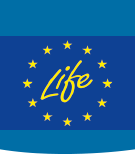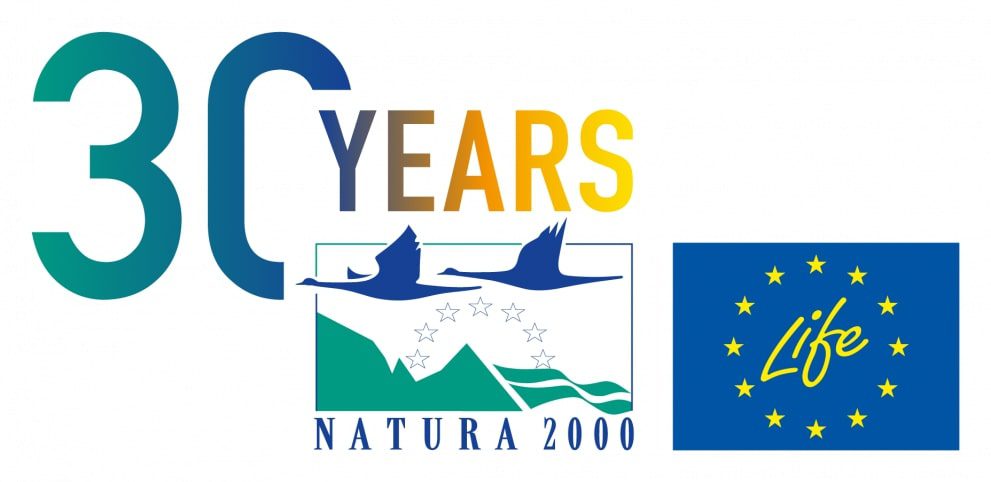Capacity building

Actions
A. Implementation actions
A.1 Establishment and operation of a new LIFE Climate Team (LCT) (Ministry of Innovation and Technology –MIT)
In order to stimulate the LIFE programme effectively, a new team of 4 desk officers will be created that will result a significant increase in quantity as well as the quality of project proposals under LIFE Climate Action sub-programme in all three major priority areas (CCA, CCM and GIC) covering all three NUTS-1 regions of Hungary.
A.2 Foreign best practice exchanges for LCT (MIT)
The opportunity of gaining knowledge and first-hand experience in best practices will be given to new desk officers to take part in exchange of experiences with those LIFE national contact points whose country is successful in the implementation of LIFE. There they will also be able to meet successful LIFE project managers and present the successful Hungarian LIFE projects too. Hence, the other EU best practises will improve the Hungarian implementation system of LIFE and we will also be able to help our colleagues that make these experience exchanges, mutually beneficial.
A.3 Establishing an environment protection and nature conservation LIFE support team (Ministry of Agriculture – MoA)
In the MoA 3 employees will be employed for the whole project period (3 years) in the 3 relevant departments (Department for Environmental Development, Department for Nature Conservation, Department for Financial Management). 1-1 new person for the whole project period with appropriate professional qualification will be employed in the Department for Environmental Development and Department for Nature Conservation (covering Environment and Resource Efficiency; Nature and Biodiversity; Environment Governance and Information strands). Their tasks will be the following: technical/professional helpdesk function for applicants, promotion of integration and replicability of LIFE results into policies and other programmes, organizing and implementing thematic workshops, preparing and maintaining project database (managing environment and climate data will be the task of the Department for Environment Development, and the Nature Conservation Department will manage nature conservation data), participating in study trips, information-sharing with applicants at the thematic trainings, on the website and in the case of applicant’s requests. The LIFE support team will initiate negotiations and consultations with the concerned stakeholders in order to try to improve the possibilities for national co-financing. 1 new person with financial qualification will be employed in the Department for Financial Management who will be responsible the financial administration of MoA as associated beneficiary. The new employee will manage the payments relating to the project, prepare the financial reports and financial plan of the actions, as well as carry out audits.
A.4 Preparing environment,nature and climate policy project database, facilitating better use of LIFE results (MoA)
The databases will inform the potential applicants about the main data and contacts of LIFE projects and will provide opportunity for partner searching, including the organisations of the financial and science sector containing the results and up-to-date state of Hungarian LIFE projects which will help future applicants to find the potential associated beneficiaries, get information easily and draw on ideas. The other important aim is to summarise and update on a continuous basis the environment, the nature and the climate policy related indicators of the project. The common analysis and summaries of the indicators, results and experiences will be distributed to policy makers so they can be used for many purposes. The database will be available on the new LIFE website.
A.5 Environment protection and nature conservation study trips (MoA)
In context of these trips the institutions performing tasks of national contact points and some sites where winning projects are implemented will be visited to exchange experience. Among others we plan to receive experiences on integration, complementarity, synergies and replicability of the LIFE programme into policies, economic activities and other programmes. The selected countries (Spain, Finland, Poland) , as a first idea, are located in three distinct parts of Europe with different natural and economic potential.
A.6 Environment protection and nature conservation thematic trainings (MoA)
Altogether 10 trainings will be organized in the countryside. Applicants expressed their need for detailed information on the new project types and topics of the new LIFE programme and on the strands in which Hungary has not been very successful until now (environment, biodiversity, communication), including the presentations of some good examples from successful Member States. We will invite new potential applicants (governmental, non-governmental and private sector), foreign experts, furthermore decision makers, relevant stakeholders and LIFE beneficiaries to ensure possible replicability.
The following trainings would be organized:
- Integrated projects (IP) training
- Communication training
- Nature and Biodiversity trainings
- Environment trainings
- Trainings based on the applicants’ demand
A.7 Capacity building (CB) networking workshop (MoA)
The aim of this workshop (concerning environment protection, nature conservation and climate policy) is to establish networking with other national authorities running capacity-building projects. As a result Hungarian applicants will get diverse good examples from many countries and partner-searching possibilities, which they can use effectively when compiling an application, leading to better quality applications, improving Hungary’s successful participation in the LIFE programme.
A.8 LIFE support team and LIFE financial helpdesk concerning to both sub-programmes (Hungarian Development Centre - HDC - Magyar Fejlesztési Központ nonprofit kft. - MFK)
The objective of the team is to provide candidates with detailed LIFE financial information and assistance and general LIFE administrative advices than precedented. The members of the helpdesk team will proactively map out potential beneficiaries and the best LIFE projects.
A.9 Translation of documents for the potential applicants (MFK)
It is considered necessary to translate the documentation packages of the environment, nature and climate policy themes into Hungarian in order to broaden the number of potential candidates and familiarize them with the LIFE Programme and the particularities of the calls better than it used to be customary. The translation of the LIFE documents would also decrease reluctance of applicants and partners towards application in foreign language. It would also increase the work efficiency of supporting professionals.
A.10 Climate Policy thematic trainings (MIT)
This action offers climate policy know-how during 9 trainings. In this action we will organize different trainings concerning LIFE Climate Action projects in the MoND. In addition to mitigation of the impact of climate change, attention should be paid to adaptation and to its effects. As a result of the trainings more applications will be generated in the different priority areas and different project types of LIFE Climate Action. Our trainings offer brainstorming, which are the topics that can be more successful and we can give guidance how a successful LIFE proposal is written. During these trainings we will also foster the aspect that the results of their LIFE projects should be integrated into and complementary with different policies and economic activities showing them best practices gained in the study trips.
A.11 Study trips of MFK focusing on financial and general issues related to actions A.2 and A.5 (MFK)
Related to actions A.2 and A.5, two helpdesk officers will participate in the study trips of the ministries in order to adopt LIFE good practices and to accomplish their LIFE help desk tasks at the highest possible standards. The helpdesk officers’ knowledge base related to LIFE financial and general issues in the themes environment, nature and climate policy and their international relations will expand thereby facilitating continuous exchange of experience.
B. Monitoring of the impact of the project actions
B.1 Evaluation and measurement of the LIFE CB project’s impact (MFK)
An initial evaluation will be followed by three others so the project progress achieved will become precisely quantifiable. The detailed initial survey will measure the start point and the following surveys will measure the progress of different project actions and the changes of the knowledge, skills of the applicants.
C. Actions for communication and for dissemination
C.1 Request, creation and maintenance of LIFE information website (MFK)
The dedicated LIFE awareness raising website and the social media platforms (e.g. active use of Facebook, Twitter etc.) will facilitate the rapid information flow thereby reaching stakeholders effectively. The online platforms will provide updated information to as many potential beneficiaries and project owners as possible. Information, available in native language, will help potential stakeholders to find those LIFE calls for proposals and events which meet their fields of interest, as well as news regarding the LIFE Programme and the already successful projects. The website will contain e.g. news and reports about current LIFE events, contact data of the helpdesk and the professional support team, reports related to actions, presentations of the “information day” events and the thematic trainings, workshops. The timely and continuous flow of information will also contribute to design new and good-quality LIFE applications.
C.2 Organization of information-day events (MFK)
The purpose of information-day events (one in every year), is to provide comprehensive information to the beneficiaries regarding e.g. the new calls for for proposals: general and financial legislation of LIFE Programme and the main characteristic of the sub-programmes (including the environment, nature and climate themes too); and the best practices. Invited stakeholders who are known to or allegedly may participate in LIFE calls for proposals, based on their results or as potential candidates.
C.3 Organization of workshops on project management and drafting applications (MFK)
The experience by the project beneficiaries and the experience on policy-making in the Programming period 2007-2013 tend to allude to sufficient deficiencies in the areas of drafting applications and project management. The workshops will focus on the overview and the interpretation of the Application Forms of the LIFE calls on environmental nature and climate themes. The participants will be informed about the financial legislation and issues of LIFE Programme, furthermore general FAQ will be discussed.
C.4 Publication of leaflet (MFK)
In the framework of the project a short information leaflet is planned to be published (altogether 2000 pieces). The leaflet will introduce the main characteristic features of the individual action areas (targets, priorities, thematic priorities, main features – eg. co-financing rates etc.). in environment, nature and climate themes and potential candidates will acquire more information and they will be able to identify whether the LIFE Programme is suitable for their targets.
C.5 Dissemination tools (MFK)
The promotion of the project through the use of dissemination materials will contribute to a wider awareness about the environment, nature and climate themes of the LIFE Programme. The combination of the different promotional materials with project events will facilitate that project applicants find information directly and easier about LIFE NCPs or about how to contact the LIFE Programme Support Teams.
D. Project management and quality control
D.1 Project Management (PM) and Steering Committee (MIT)
A 15-person Steering Committee (SC) is created with representatives of all three beneficiaries (MoND, MoA, MFK). SC meetings are led by the project management leader (Head of Department of the MoND.) The SC receives professional and administrative support by the beneficiaries, SC meetings are reported to the signatory people for internal approval of progress of the project.
D.2 Audit of the project (MIT)
Audit of the application will be completed the latest at the end of every project period in line with the project proposal, but also taking into account the Hungarian budgetary audit rules.
D.3 After LIFE plan (MIT)
In 2018 we will elaborate an after LIFE plan how we will maintain, continue and further develop our actions. In order to foster the exchange of experience, we will maintain our platforms and our project webpage, besides we are striving for keeping our staff and we will also establish an Alumni Group.




